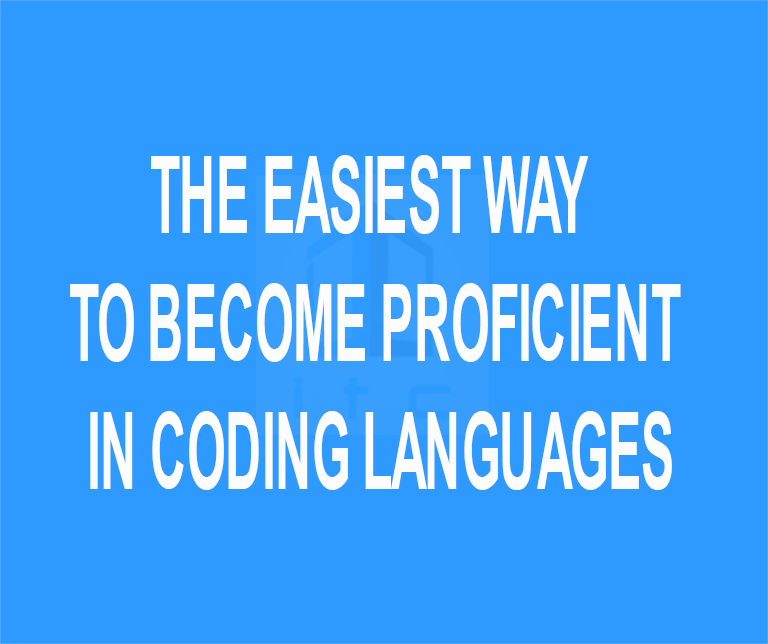There is always some fascination that follows people who are incredibly talented in using various coding languages. Some people pressure themselves into learning many coding languages so that they can enjoy “the glamor” of being a coding whiz. The outcome of their rushing mentality – their skills on the many languages they have may have interacted with are often below par and cannot be relied upon for meaningful real life applications. The fact is that coding languages are so many and you can’t be a master in all of them. You must first question why you may want to learn a given coding language.

For instance, if you want to be an Android software developer, it would be a good idea to learn Java since it is the most commonly used language for making Android apps. Programmers who may wish to have a detailed understanding of Operating Systems such as Windows and Linux should extensively focus on C and C++ programming languages since they are extensively applied in writing OS functions. Web designers are encouraged to focus much of their skills in languages such as HTML and JavaScript since those are the languages that can best represent their programming enthusiasm.
If you wish to master all programming facets (web design, app development, Operating Systems and so on), you should learn their accompanying languages in a systematic order. For faster skills grasp, you can always pair related coding languages such as (C & C++), (Java & C#), and (HTML & JavaScript). Mixing coding languages meant for different purposes (such as learning Java and JavaScript in one session) may slow your learning progress since the languages target entirely different ideas.
Again, if you wish to become an incredibly good programmer, you must be specific on the programming niche you would wish to leave a mark. If you are robust interest in web design, it would be very beneficial for you to focus more on web design coding languages and only engage a little in other languages just for the sake of ensuring that you at least have the basic understanding of other coding topics.
Have a Compiler
Anytime you are learning any coding language; the objective is often to use the skills you would have gained to do something meaningful. For instance, if you are learning to become a web design professional using a language like JavaScript, it will be a complete waste of time not to put the web design skills you would have gained into designing websites. The only way you can transform your coding skills into reality is by running them on a compiler.
A compiler can enable you to identify certain errors that may be present in a certain piece of computer program code. By eliminating such errors, you can immensely increase your understanding of the given programming language you may be dealing with. Compilers are what are used for developing coding projects, and without them a detailed understanding on how to use them, you can’t really count yourself as a programmer.
Relying on Coding Tools
Some projects may involve writing tiresome long lines of computer codes, and this aspect often makes some projects to be unbearable for some programmers. Pre-written programs such as web builders can reduce some conventional coding lines and thereby allow programmers to work on the customizable parts of a given coding project. For instance, there are great online platforms that can prove to be of immense help among programmers who specialize in web design, such as a free site builder. The platform has links to pre-prepared templates that can be selected and added to an already prepared website codes.
Such tools can greatly reduce the amount of time taken for web designers to come up with a complete project. The other benefit of the tools is that they are easy to incorporate into an existing website and any changes can also be made to them should there be such needs.
Learning from Video Tutorials
Computer programming languages cover extensive topics much of which cannot be fully exploited by just relying on the normal tutor-student interactions. In fact, the best programmers get much of their skills from what the coding tasks they do on their own. Video tutorials on several programming languages can be easily accessed via online video sharing platforms such as YouTube. You can follow the coding tips relayed by the videos and even try them on your own.
Besides, video tutorials serve an excellent way of having full knowledge grasp for a programming topic which may not have been understood well in the routine programming classes. Many video tutorials are also prepared by highly-experienced computer programmers and tutors. That means the programming amateurs who use tutorials open themselves for a path which can immensely improve their understanding of the language they may be studying.
You can also stay updated by subscribing to iTechCode.